Taipei is filled with contemporary museums, historic old streets, ancient temples, modern shopping malls, and surrounded by wild hiking trails, all of which make for interesting adventures for couples. For a really unique experience, book a private cooking class and make your own Taiwanese dinner.
📍 Route 1: Hiking and Night Markets
Elephant Mountain
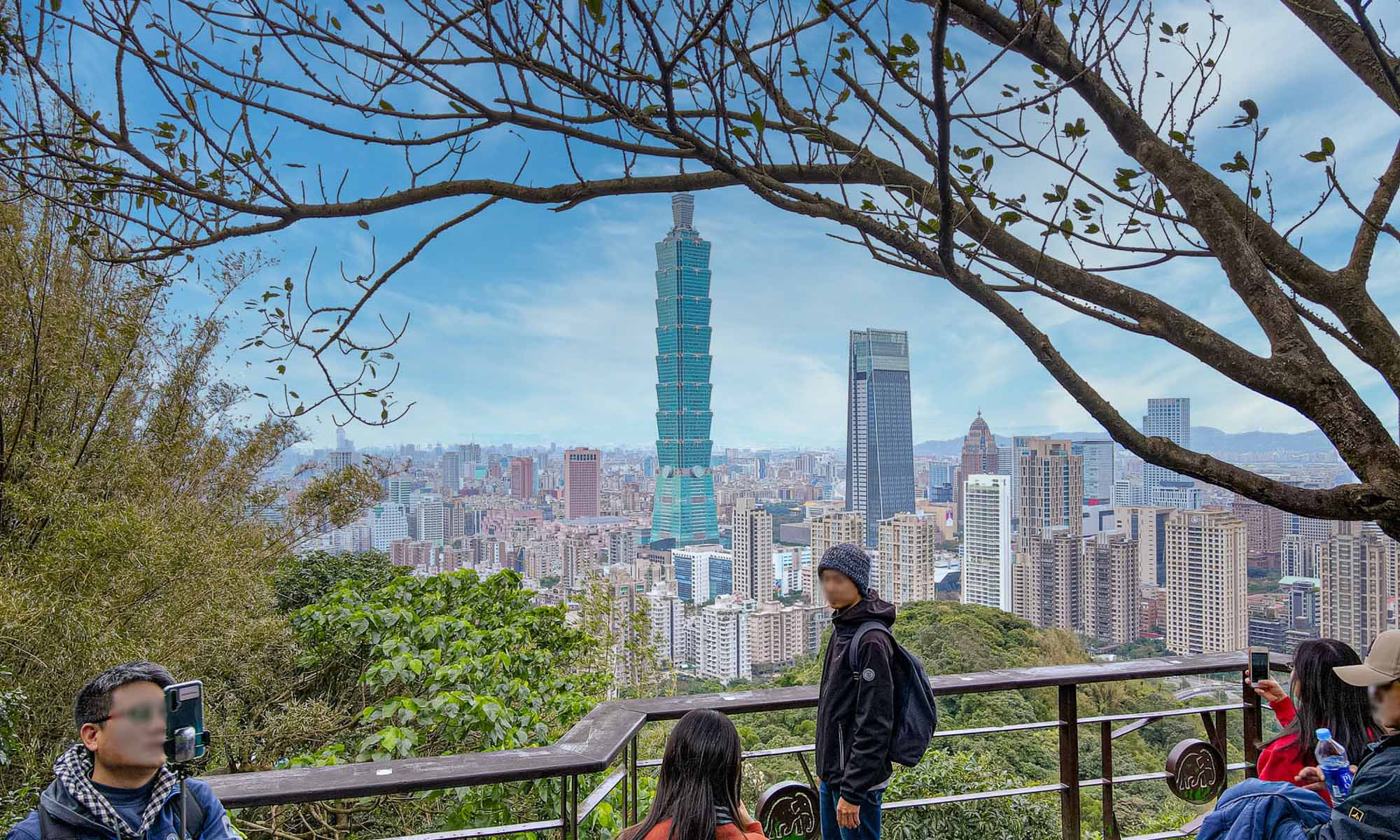
Elephant Mountain is the most popular day hike in Taipei, and is perfect for couples. The trail starts off just behind Taipei 101 and climbs steeply up, passing temples, city gardens and resident run outdoor gyms on the way to the peak. It’s common to pass locals of all ages on the trail. Even local retirees climb these stairs as part of their daily exercise routines. While the peak is only 183 meters above sea level (about 600 feet), the steep grade of the staircase might be a challenge for some. Around the peak, there are several platforms offering excellent vantage points of Xinyi District and the rest of Taipei Basin. On days with low humidity, Yangmingshan is visible to the north and Wugu to the West. From the peak, other trails branch off in various directions leading to small shrines and temples. The main trail continues leading to the other peaks of the Four Beasts (of which Elephant Mountain is one), before returning to Taipei around the Yongchun Area. Unless it’s midwinter, we recommend tackling this hike either in the early morning or in the evening to avoid the head. Read more about Elephant Mountain.
Local Cooking Class
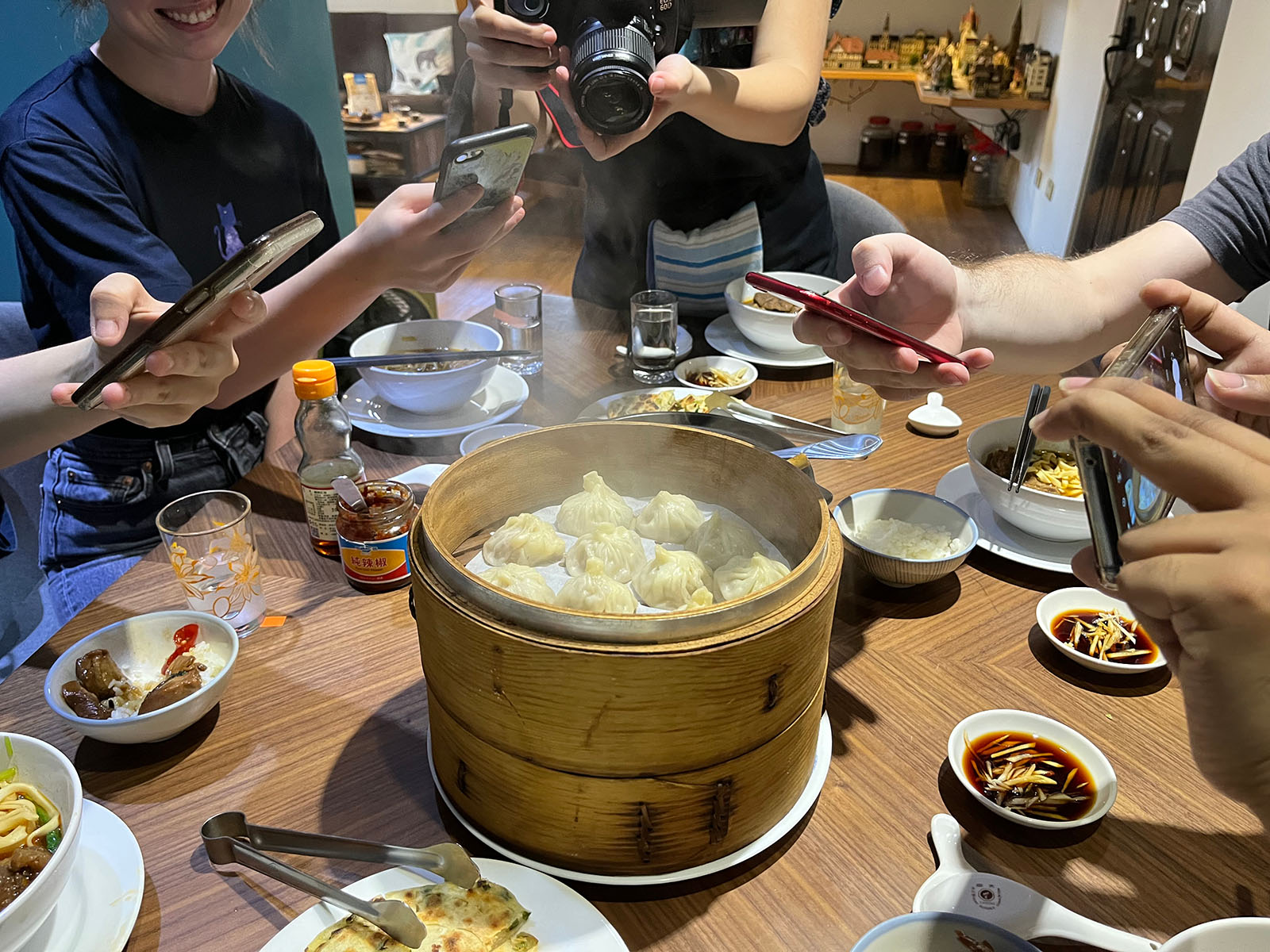
What’s more rewarding than learning to make a local dish from scratch with your own hands? Numerous private studios in Taipei offer cooking classes that can be customized to client’s dietary needs and often integrate shopping for ingredients at a local market beforehand. Ivy’s Kitchen in Tianmu teaches recipes of all difficulties taking client requests and culinary background into considerations. The amount of work required varies by the dish: simply stir-fry dishes might be quicker to prepare (under 30 minutes), while more complicated dishes like soup dumplings, zongzi and baked paper bun might take up to 2 hours. Of course, after you’re finished, you get to celebrate by eating your own home-cooked Taiwanese meal.
Ningxia Night Market
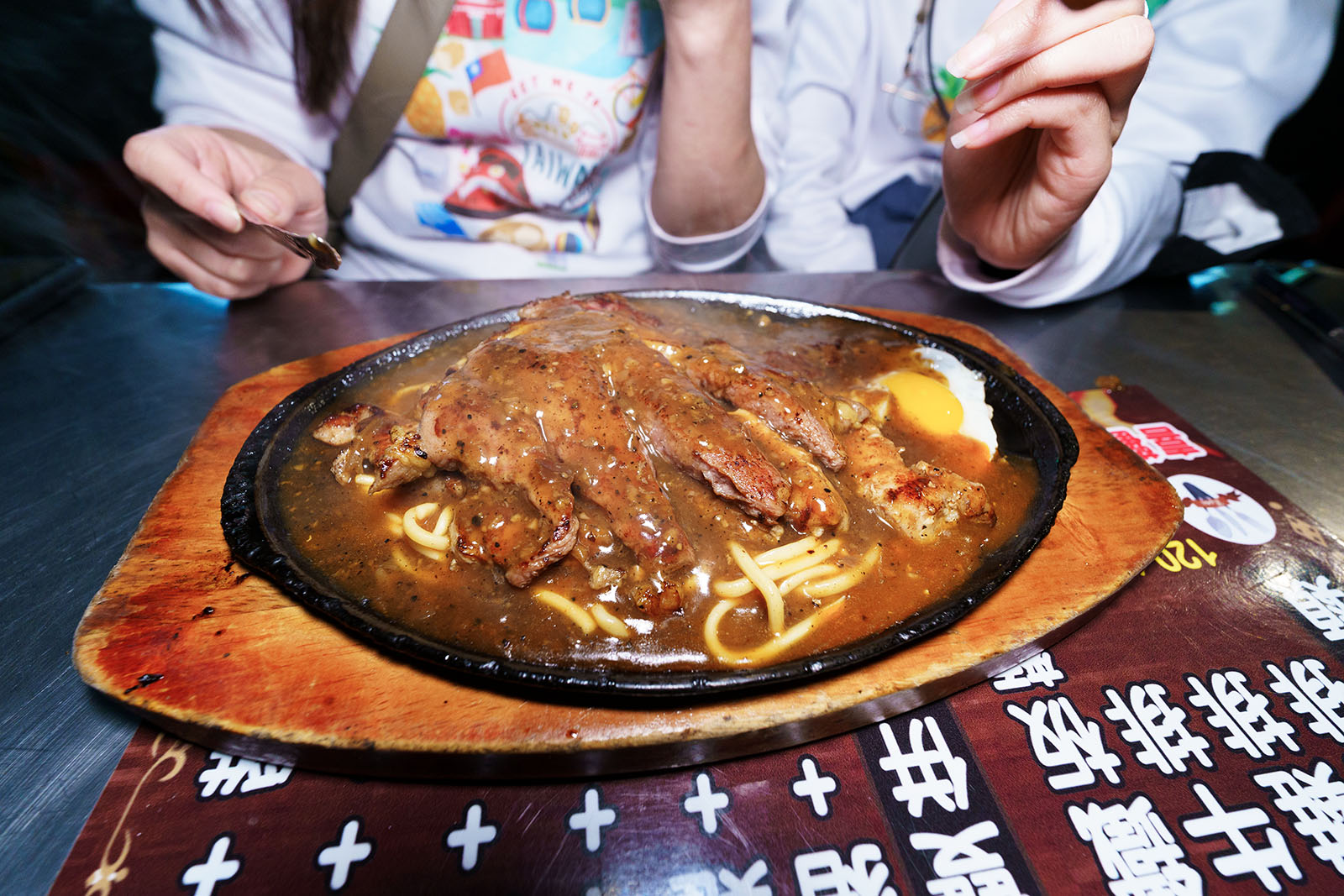
According to tourism statistics, Taiwan’s most visited attraction is its night markets. Taipei’s four largest night markets are Shilin, Raohe, Tonghua, and Ningxia. Of these, Ningxia is the smallest, most manageable, most navigable, and most original. There is no shortage of dining options here and some stalls and restaurants have been in business for over 50 years and multiple generations. A particular standout is Huan Ji Sesame Oil Chicken, which has been operating since 1941 and is located in a storefront on the western side of the market. Besides this, the northern end of the market has delicious and cheap fresh fruits, and Taiwanese Run Bing (think of a made-to-order spring roll), while the southern end of the market has sit down restaurants and a games area. As with all night markets, vegetarian options can be found here as well.
📍 Route 2: History vs Modernity
Dadaocheng & Dihua St.
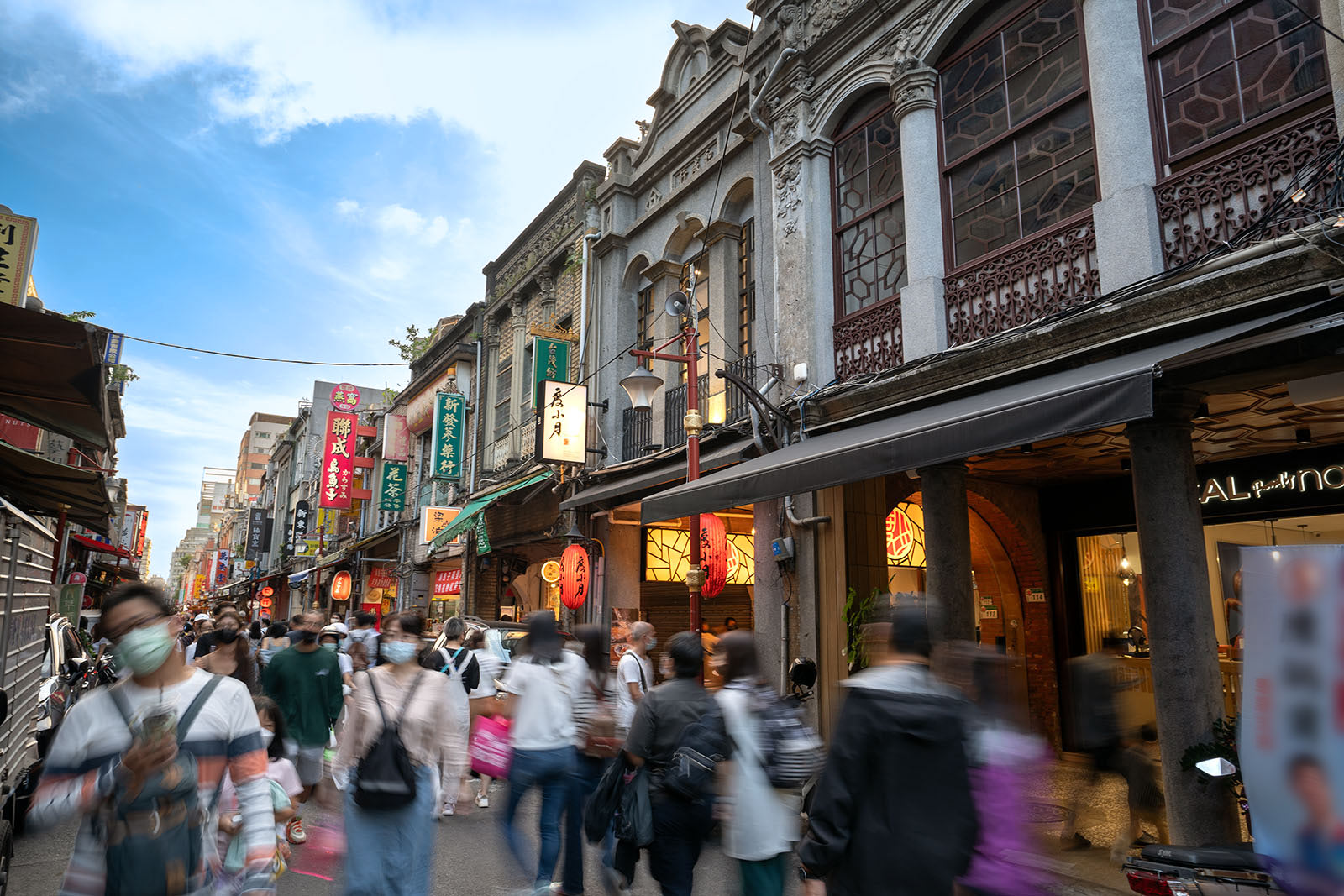
Taipei’s oldest district, Dadaocheng, was once a busy port and the city’s center of trade. Today, walking among its Baroque revival and Western-inspired red brick storefronts, one will find a mixture of trendy cafes, specialty boutiques and mom-and-pop wholesale shops selling everything from traditional Chinese medicine ingredients to woven bamboo products. Dihua St. in particular, with its densely packed and innovative storefronts, can easily take the entire afternoon to explore. If you get hungry, don’t worry, the area is filled with a variety of restaurants, pastry shops, and even upscale bubble tea parlors. Read more about Dadaocheng’s Dihua Street.
Songshan Creative and Cultural Park
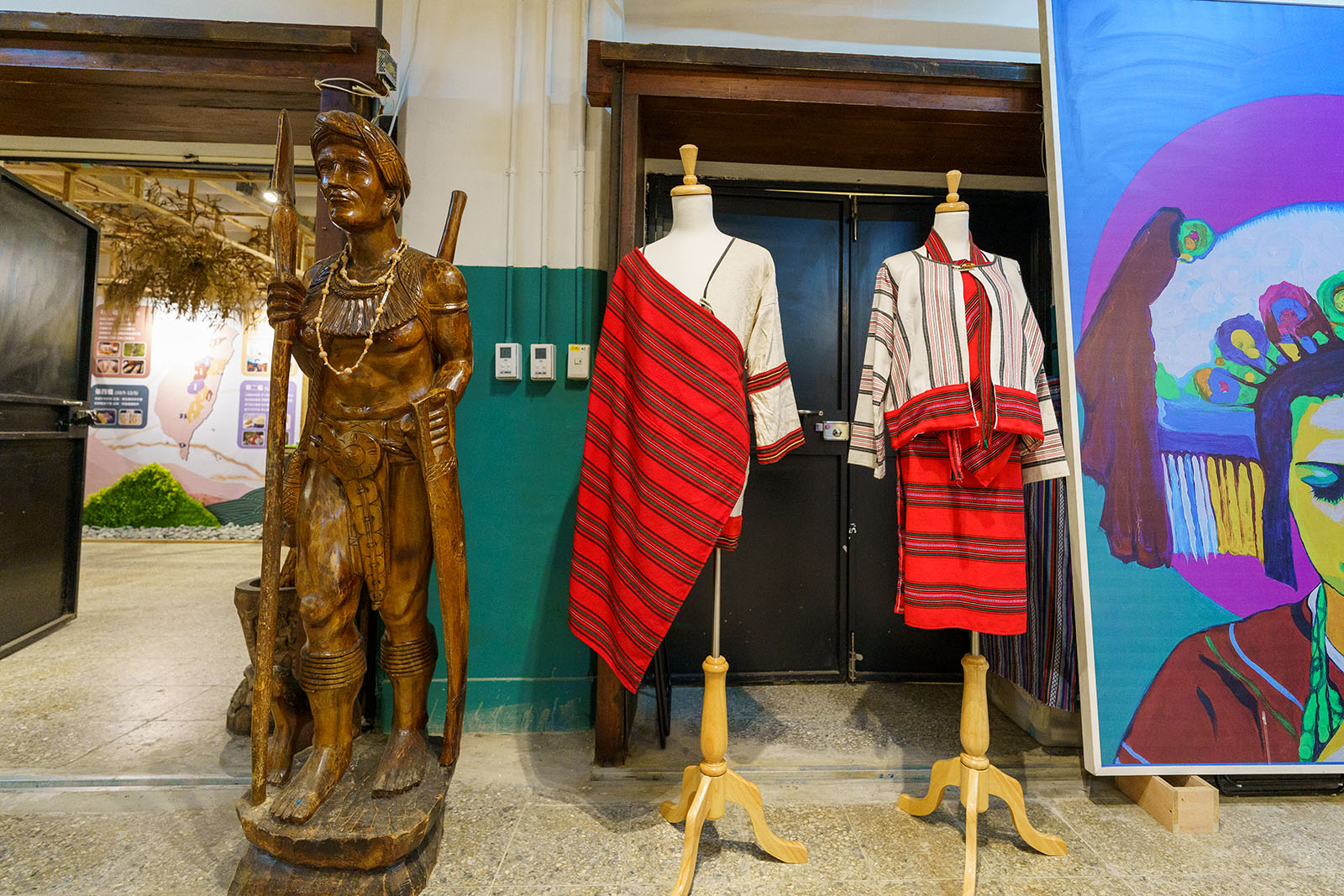
Songshan Creative and Cultural Park is a cultural and design hub located inside an old tobacco factory. As is quite common around Taiwan, industrial exteriors—in this case Japanese modernist architecture—hide spacious and renovated and extremely modern interiors. The multi-use complex features exhibition halls, art house theaters, multiple shopping galleries, an outdoor garden, and the Taiwan Design Museum.
Along with Eslite Xinyi, the Songshan Creative and Cultural Park is the second most interesting place to go to understand Taiwanese design aesthetic and local trends in fashion, art, and performance. With multiple shopping galleries featuring local lifestyle brands, stationary, DIY stores (including a silver workshop) and a food court, the park offers one of the most pleasant shopping experiences in Taipei.
« Read LessEslite Xinyi Bookstore
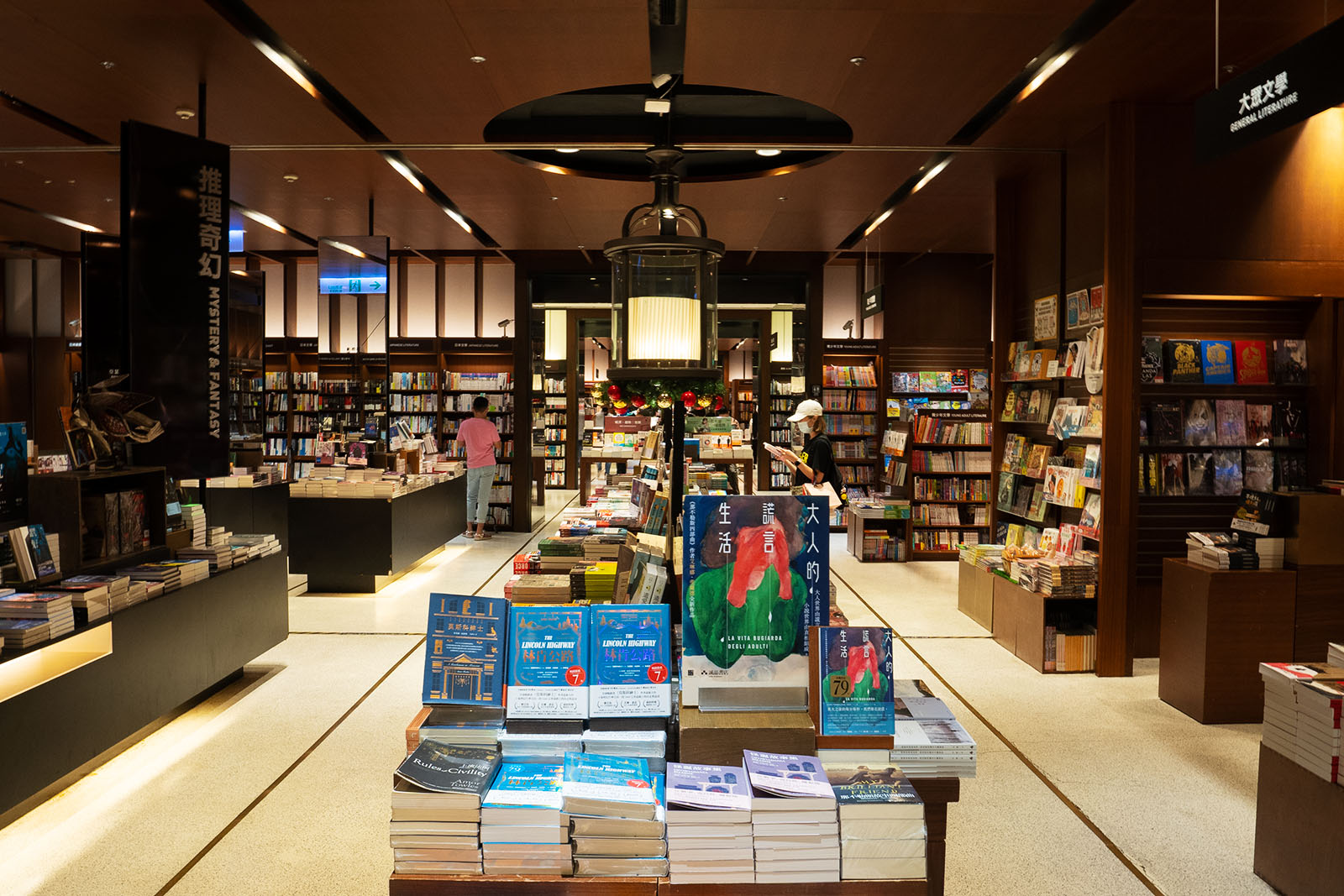
With over 8,000 square meters of floor space, and over four floors, Eslite Xinyi is Taiwan’s largest and most diverse bookstore. Eslite specializes in art and culture books and includes a large selection of English-language materials as well as a record store, and a cafe. The lower level features domestic and imported designer brands and a food court can be found in the basement. The upper levels of the bookstore feature stationary, lifestyle items, and restaurants.
Taipei’s Jazz Scene: Blue Note / Sappho Live
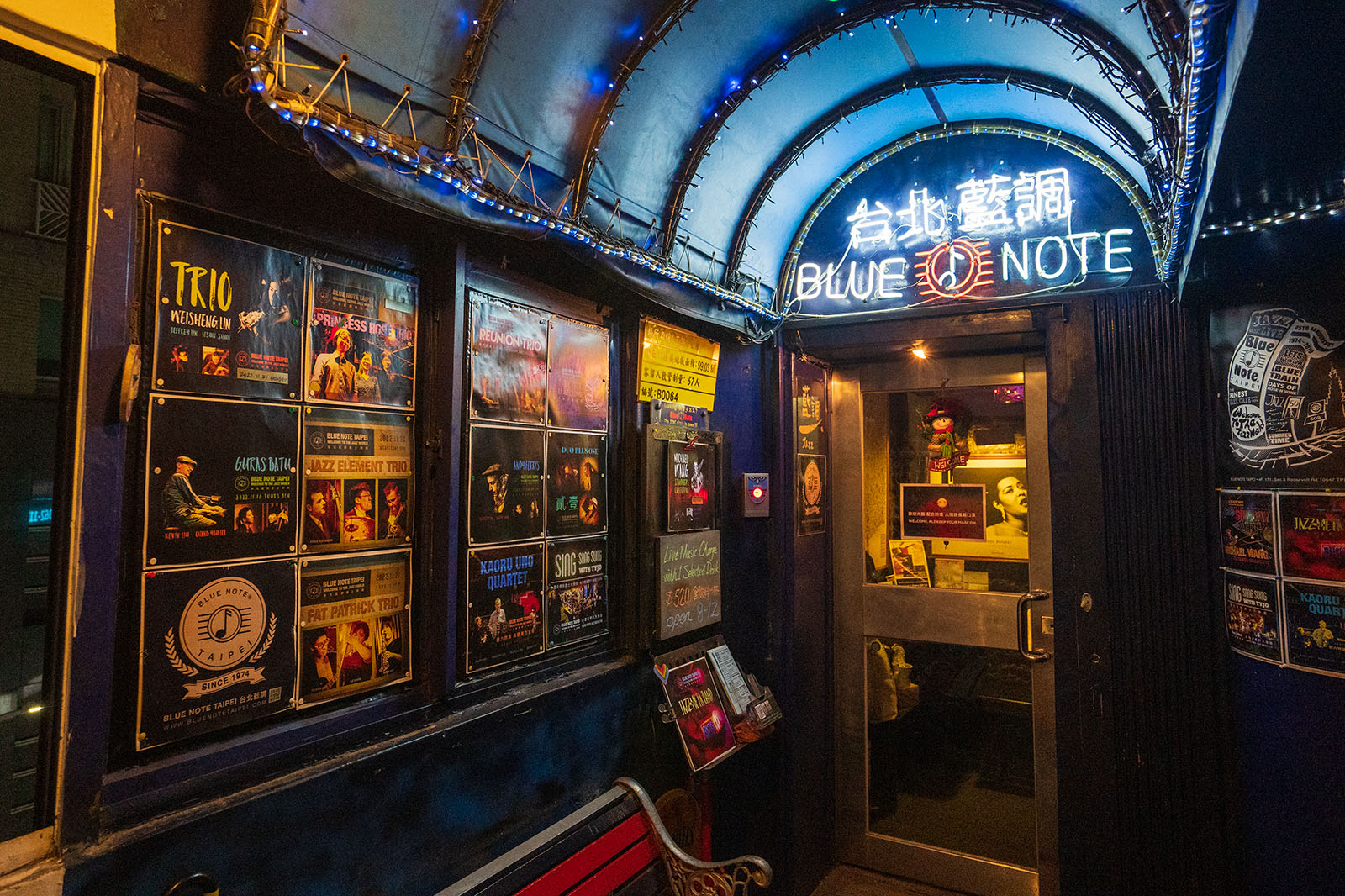
Taipei’s Blue Note, an understated jazz club that has existed for decades and doesn’t really have an advertising budget, is Taipei’s number one jazz club and a great place to gain an understanding of Taiwan’s small but eclectic underground music culture. Having changed hands once since its opening, the inside has remained nearly unchanged. A wall of jazz records decorates the entrance and a solitary grand piano that has never been moved continues to occupy the majority of the cramped stage. Sappho Live, another Taipei jazz club, hosts a more eclectic selection of performance styles including blues, reggae, and latin-inspired beats, and attracts a younger crowd.
📍 Route 3: The Arts
Huashan 1914 Creative Park
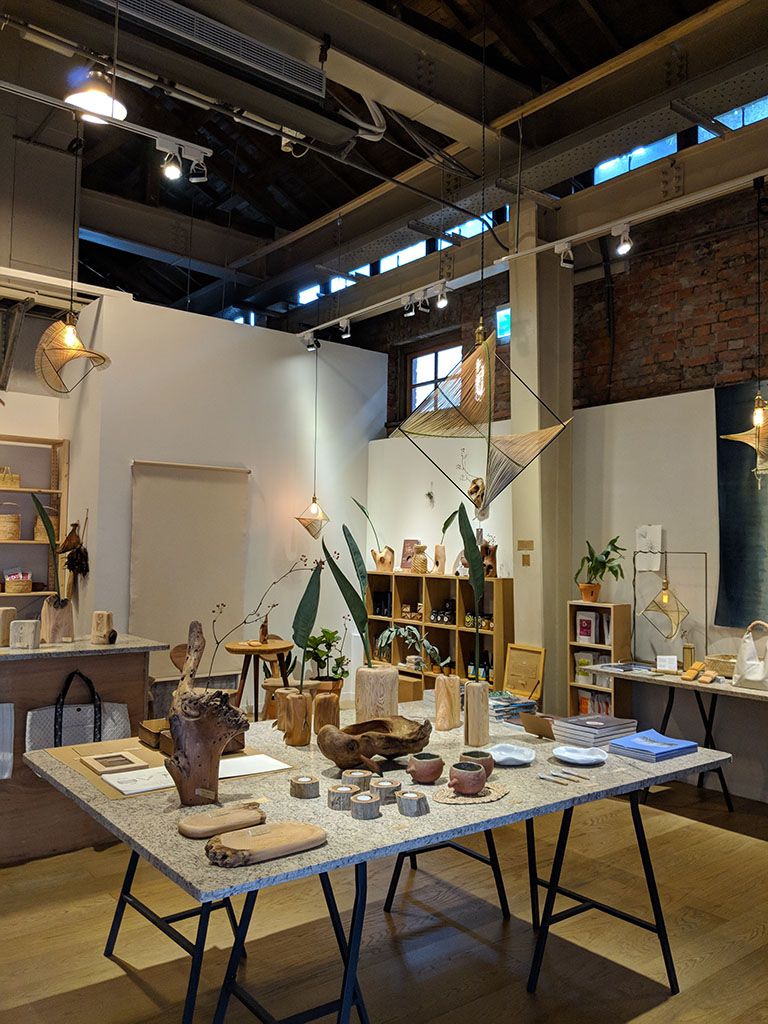
Around 100 years ago, Taihoku Winery was producing rice wine and liquors in the place where Huashan 1914 Creative Park stands today. In 2005, the former winery was repurposed into a cultural park. The site now features exhibitions, musical performances, long-term art installations, and is home to countless shops, restaurants, pizzaries, and a theater specializing in foreign and arthouse cinema. On weekends, it’s common for the outdoor spaces in Huashan 1914 Creative Park to host markets, small scale arts performances, and pop-up exhibitions.
Museum of Contemporary Art Taipei (MOCA Taipei)
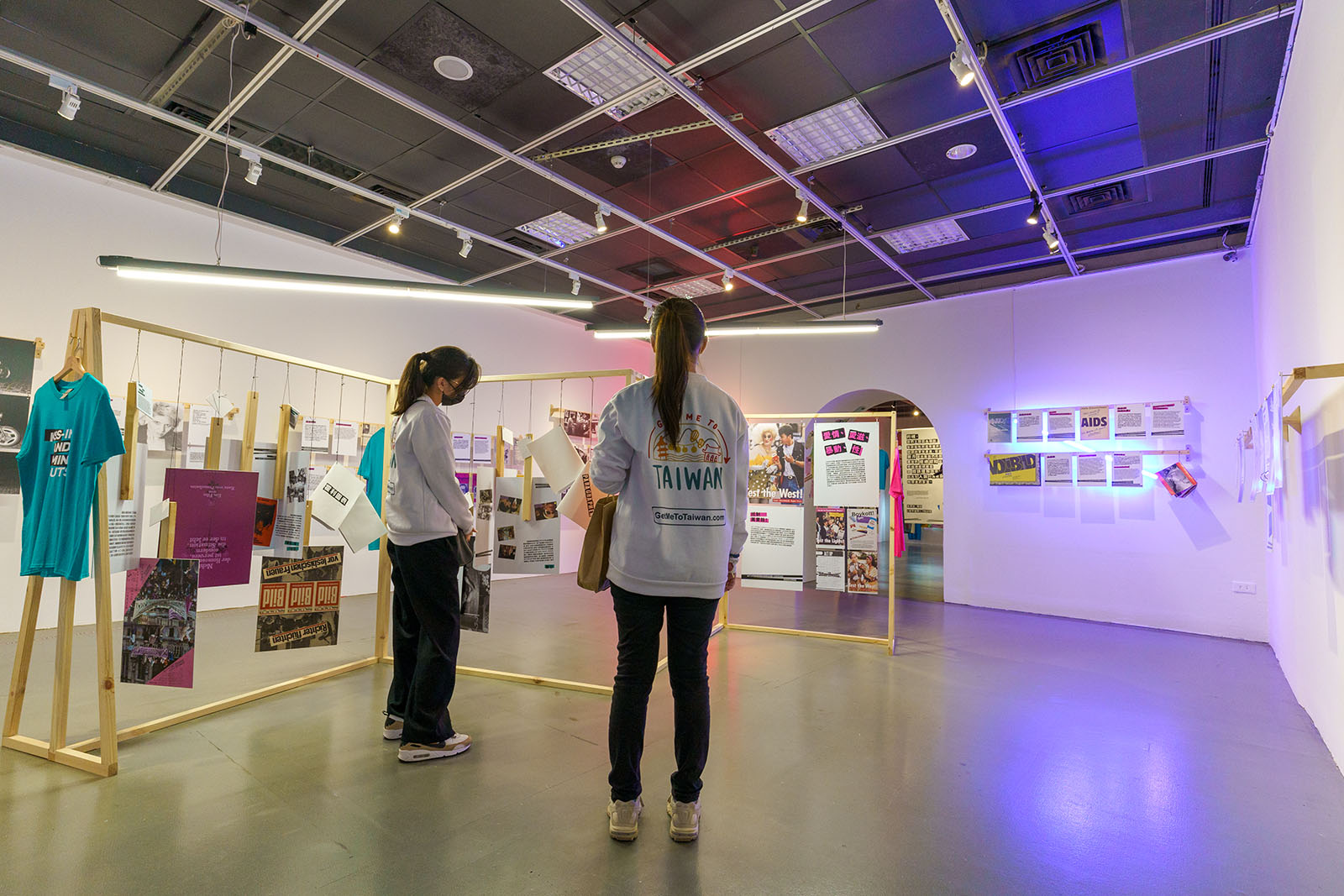
The Museum of Contemporary Art Taipei perfectly encapsulates the quirkiness and sincerity of Taiwan’s art scene. The museum is located in an elementary school from the Japanese colonial era, which also happened to serve as Taipei City Hall from 1945 to 1993. Today, MOCA Taipei has become an important arts and culture hub in Taipei. The museum offers themed tours and guided tours as well as audio guides, and is wheelchair accessible.
Longshan Temple
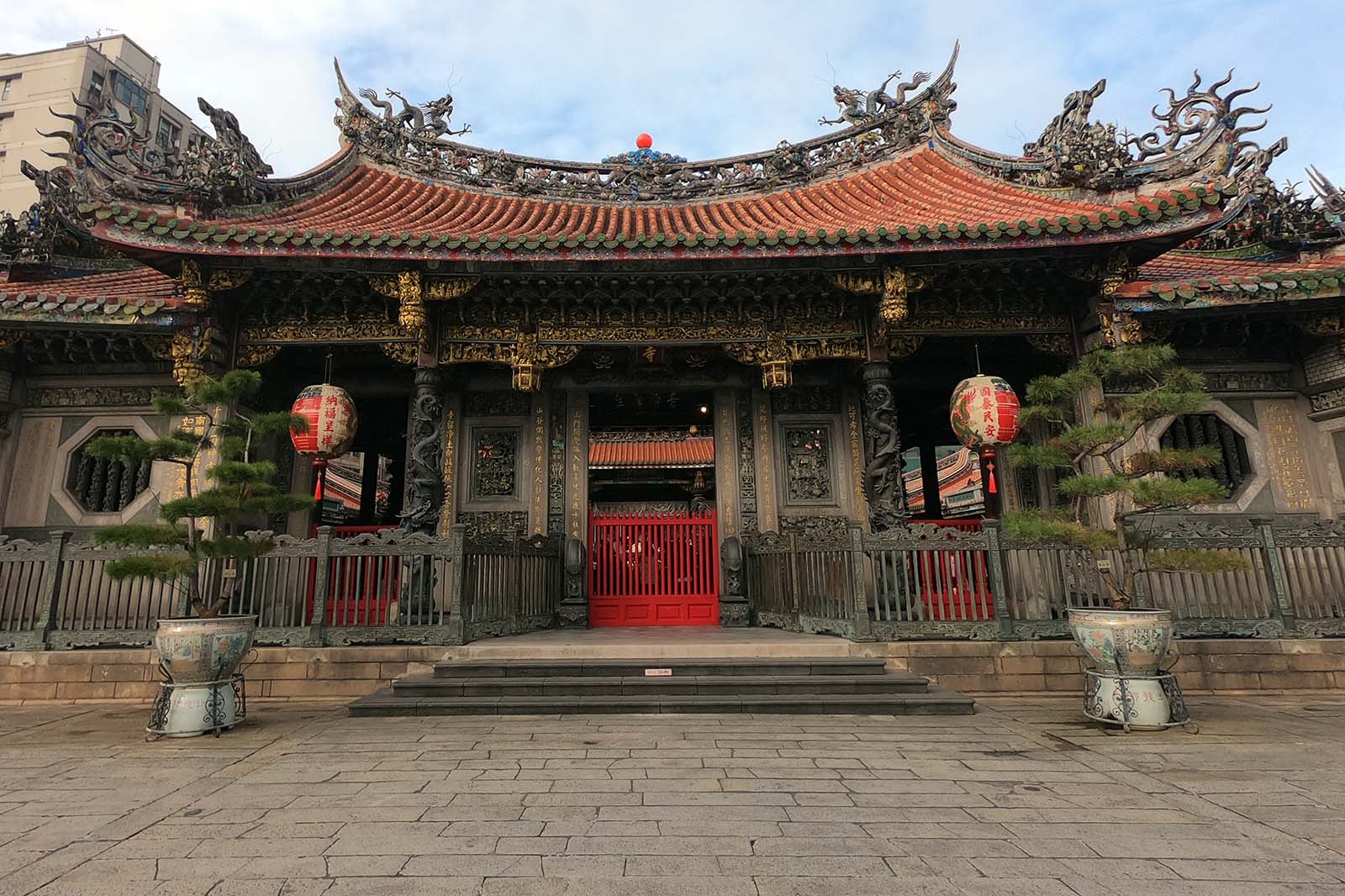
Longshan Temple is located in Wanhua, Taipei’s least modern district and home to much of its remaining traditional culture. The temple primarily worships the Goddess of Compassion, Guanyin, but as is common in Taiwan, also features the effigies of 100 other gods and goddesses scattered throughout its halls. Two markets directly adjacent to the temple are also particularly representative of local folk culture. First, there is the Huaxi St. Night Market, famous for vendors specializing in snake-derived products, including drinkable snake blood. If that isn’t enough, heading underground to the Longshan Temple Underground Shopping Bazaar will take you to the local center of folk divination and fortune telling. Locals and tourists alike travel here to get all sorts of questions answered, although primary concerns usually revolve around romance, career, and pivotal life decisions. Fortune tellers will post their conversational languages outside of their booths and both English and Japanese service is common.


